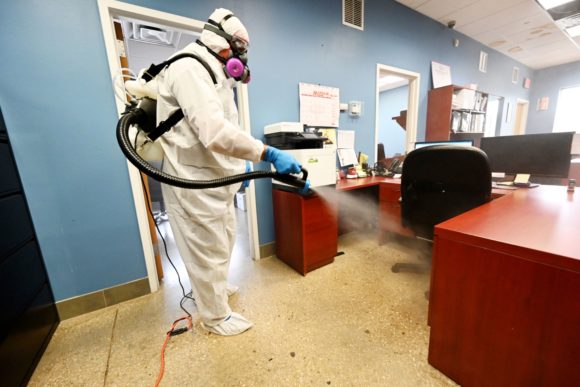The workers’ compensation line is unlikely to generate a profit this year and may not recover in 2021, an insurance industry economist said during a webcast Thursday.
Steven N. Weisbart, senior vice president and chief economist for the Insurance Information Institute, said carriers did not factor in the cost of COVID-19 claims when they filed this year’s rates because the disease did not exist. The National Council on Compensation Insurance said the first full quarter’s data on COVID claims costs won’t be available until the end of September, and workers’ compensation rates in many states will be set before then.
“We are talking about a really difficult year,” Weisbart said. “We are working with rates that were essentially generated a year ago or the year before. The rates may not be sufficient.”
Weisbart gave his grim prognosis during a panel discussion on the impact of COVID-19 on workers’ compensation along with NCCI Senior Actuary Sean Cooper and Senior Division Executive Jeff Eddinger. Insurance Information Institute communications director Mark Friedlander moderated.
Cooper said at this point, NCCI has data on COVID-19 claim costs only for the month of March. That claims data is being excluded when employers’ experience modifications are calculated, so insurers won’t be able to recover any increased costs.
NCCI said it started this month filing next year’s loss cost rates and experience ratings. Those rates will take effect beginning late this year and into mid-2021.
NCCI said in a July 16 memorandum that next year’s rates will not be adjusted to include the impact of COVID-19 claims. What’s more, the organization said it has no plans to submit updated “law-only” rate filings if state legislatures change workers’ compensation laws to make more virus claims compensable.
“As the COVID-19 pandemic is still in its early stages, projections of key assumptions for current and future time periods (e.g., infection/report/fatal rates) are wide ranging or not available,” the memo says.
During the webinar, Eddinger noted that several states have issued executive executive orders or passed legislation that creates a presumption that COVID-19 claims are compensable for employees who worked away from home. California, Illinois and Michigan have expanded coverage for the disease. Vermont became the latest to create a COVID-19 presumption when Gov. Phil Scott signed a bill into law on July 13.
Weisbart said the rush by lawmakers to ensure benefits are paid for workers who contract COVID-19 reminds him of their approach to business-interruption claims. Attorneys are pressuring policymakers to expand coverage for a risk that was not contemplated when the insurance contracts were signed.
On the other hand, there are offsetting factors. telecommuting has become the “new normal,” Weisbart said. Eddinger said employees who telecommute are less injury prone than workers in offices. Weibart said the pandemic is also hastening automation, which will reduce worker injuries.
Still, Weisbart said uncertainty about claims costs combined with dismal investment returns because of the economic contraction caused by the pandemic will challenge workers’ compensation carriers for the time being.
“It looks like it will be challenging for this line to break even for this year or even in future years, especially in light of the fact that for the past six years this has been a profitable line of insurance,” he said.
Eddinger said until the novel coronavirus arrived, workers’ compensation insurers would never expect to suffer a catastrophic loss from a pandemic. But since 2003, the world has seen the emergence of the SARS, H1N1, Ebola, and Zika viruses.
Eddinger said the time may have come for NCCI to develop a pandemic catastrophe risk factor that can be added to rates, similar to how a terrorism risk factor was added after the Sept. 11, 2001 terrorist attacks. He said NCCI has hired a catastrophe risk modeling firm to develop the risk factor.
Was this article valuable?
Here are more articles you may enjoy.


 Walmart to Pay $100 Million to Settle FTC Case on Driver Wages
Walmart to Pay $100 Million to Settle FTC Case on Driver Wages  AIG’s Zaffino: Outcomes From AI Use Went From ‘Aspirational’ to ‘Beyond Expectations’
AIG’s Zaffino: Outcomes From AI Use Went From ‘Aspirational’ to ‘Beyond Expectations’  Gas-Guzzler Revival Risks Dead-End Future for US Automakers
Gas-Guzzler Revival Risks Dead-End Future for US Automakers  Besieged Berkshire Utility Tries to Rewrite Who Pays for Wildfires
Besieged Berkshire Utility Tries to Rewrite Who Pays for Wildfires 